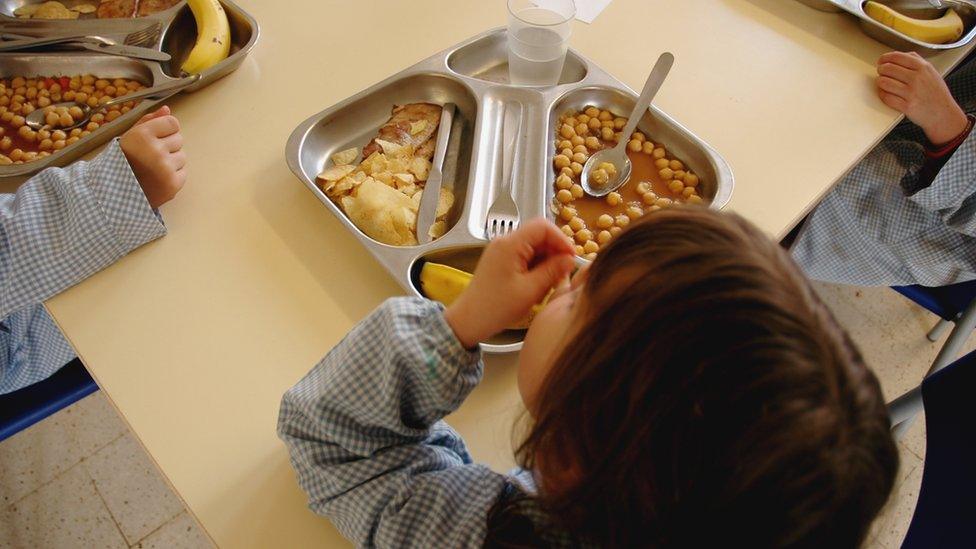'We see the queue for food growing day by day'
- Published
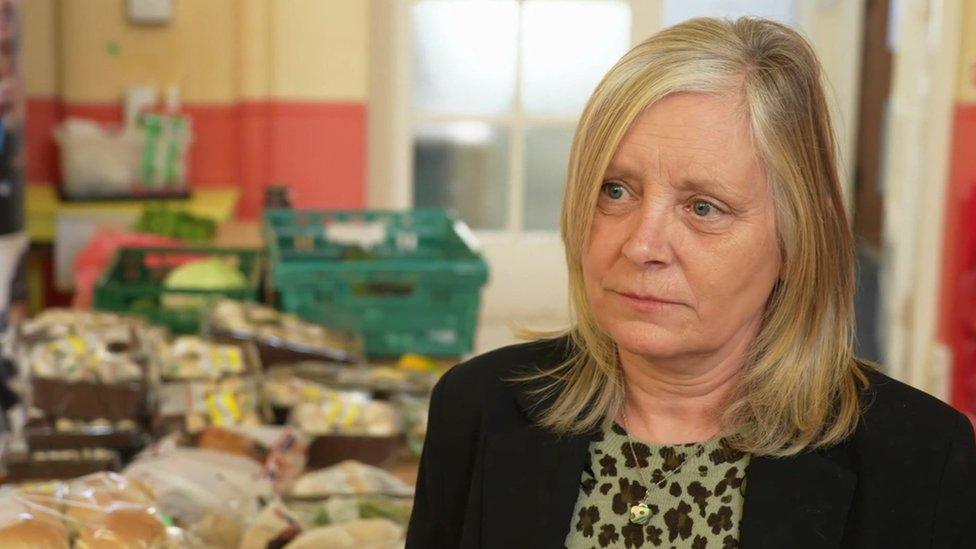
Food bank manager Angela Doggett says the queue has grown in the last two months
When Angela Doggett opens the doors to the community hub she is used to seeing a handful of familiar faces ready to collect groceries to help them through the week. But lately her few regular visitors have grown to a long queue as an anti-hunger group reports an "unprecedented demand" for help.
"I would say in the last two months, we've seen the queue increase from about four or five people to 25 to 30 people," says the manager of the Bechange project in Aylesham in Kent.
"It's people with young families, it's older people and it's people who are working…I'm seeing new people who I've not seen the week before," she says.
"We're getting people coming from further afield, from outside the village. We're getting people taking stuff for family members and their neighbours because they're worried about them as well."
And Angela is not alone - charities and community groups helping people at risk of hunger are seeing an increase in demand for their services.
The findings are part of a major new survey by FareShare which distributes surplus food to thousands of organisations across the UK.
Of the 1,200 groups which took part, 90% said their work is being impacted by the cost of living crisis.
FareShare says it doesn't have enough food to support the growing need.
It is now launching a campaign to secure more donations from across the food industry to try to keep up with demand.
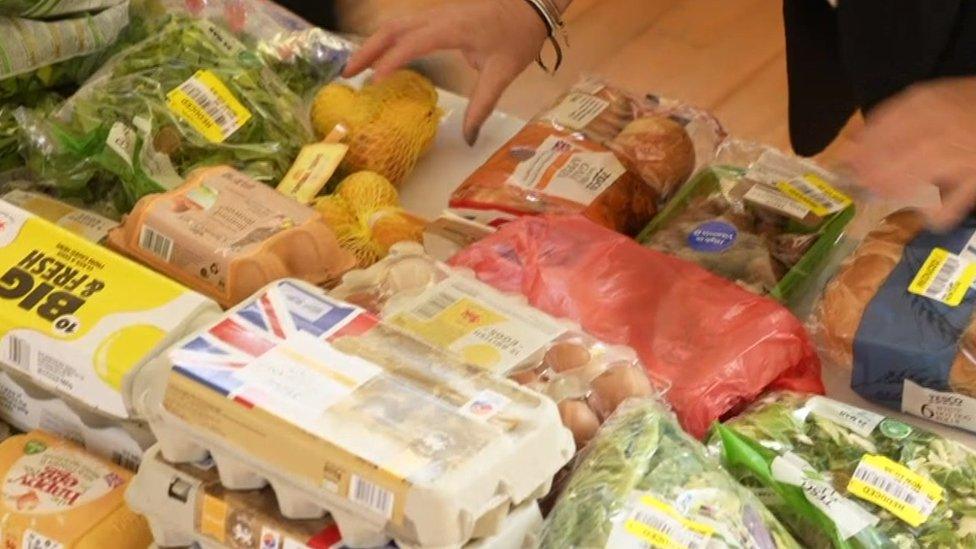
Supermarkets donate unsold food to FareShare which distributes it to charities across the UK
"A year to eighteen months ago we were sending out 1,500 trays of food a week, now it's 3,000," says Emma White, shift manager at FareShare's Kent distribution hub.
"I think that number could double again over the coming months."
FareShare has 30 regional warehouses across the UK. Teams of volunteers in high vis waistcoats pick and pack large quantities of unsold or unwanted food from supermarkets and food manufacturers. Smaller amounts of surplus food are also collected directly from retailers and food-to-go outlets.
Much of it is fresh, nutritious, produce which would otherwise go to waste.
FareShare, which is also a charity, reckons it helps feed more than a million people in the UK every week.
"It might be a homeless refuge, it might be a school breakfast club or a foodbank. We're serving all areas of the UK in different communities," says Emma, who's also a volunteer.
More than 75% of the organisations who responded to FareShare's survey said they'd seen an increase in demand. Among the reasons why people are accessing their services, 65% said it was due to the increasing cost of food whilst 52% said rising energy bills was also a factor.
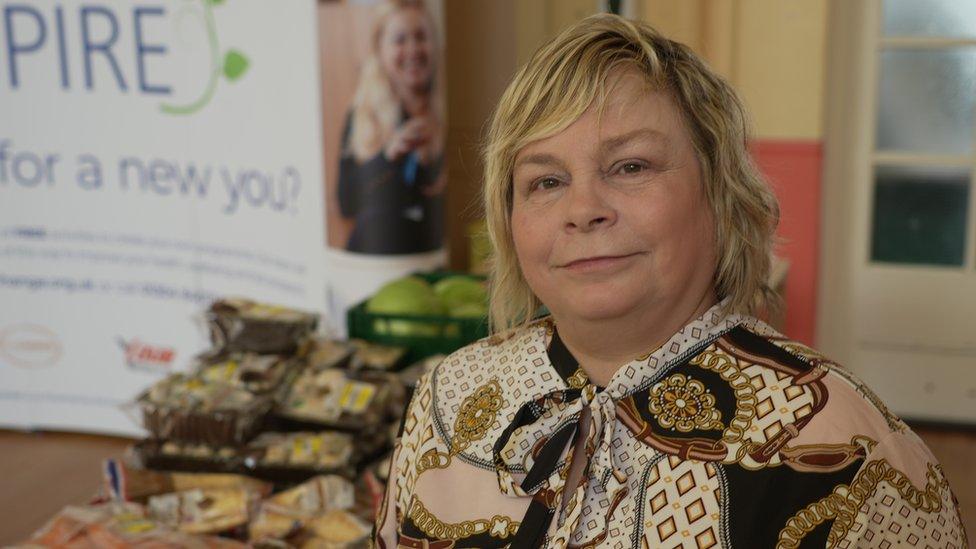
Alison Trevellion says two bags of shopping from the BeChange project save her £10
Back at the Bechange project volunteers collect food once a week and lay it out neatly on tables in the community hall for anyone who drops in.
Every Friday, Alison Trevellion, 55, joins the line of people waiting for the doors to open.
"I'll make soup with the lovely vegetables which will last a few days. I also pick up fresh fruit.. you shouldn't have to feel upset or ashamed to come here." she says. "This is for everybody."
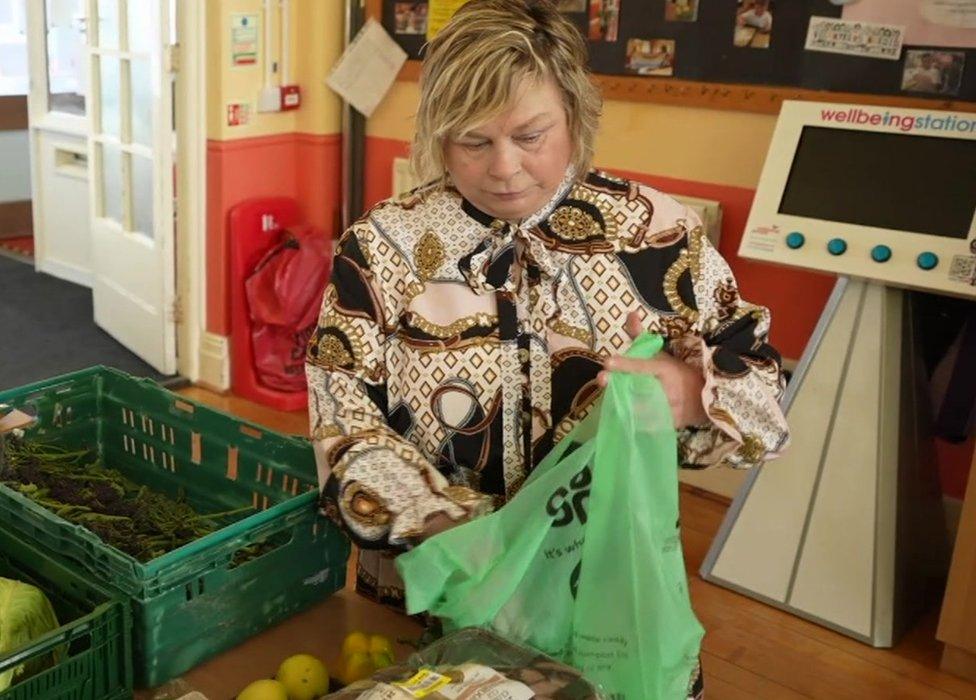
Alison says two bags of shopping saves her about £10.
Alison has been coming to Bechange for a couple of months and says it's a big help as money is now very tight.
"Maybe I'm one of the lucky ones. I work part-time, I get Universal Credit, but it's still a worry when you think how much the gas and electric is going up and I just don't think this Government is living in the real world. I would love them to have my wages for a month, and for me to have theirs. Because they would never come here," she says.
Alison says she is coping but can't stop thinking about what lies ahead.
"I go to bed at night, I start thinking about things. And I start rubbing my hair. And I've got a big patch there, because I'm so worried about things."
The workers and volunteers at this small hub can sense the increasing anxiety, too.
Angela says: "It's really shocking because it's all kinds of people. There isn't really an end to it. We know things are going to get worse, they know things are going to get worse."
Related topics
- Published7 April 2021
